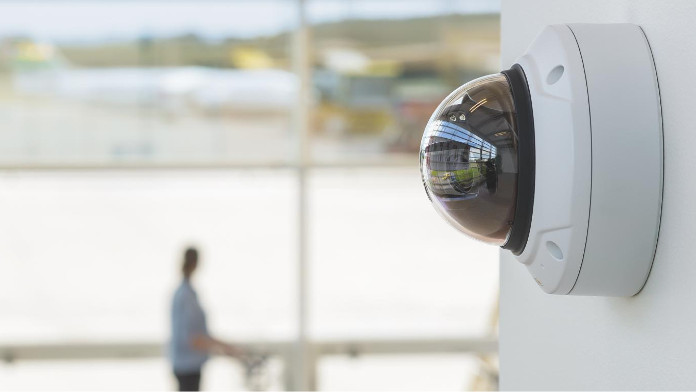Network design and services firm Betacom has developed a perimeter surveillance solution to run on private LTE and 5G networks in airports, warehouses, factories, and other venues. It has worked with Swedish cybersecurity networking outfit Axis Communications and US cybersecurity software firm Evolon on the product, called Betacom PSS (perimeter surveillance solution). It claims to offer round-the-clock (“24/7/365”) physical threat detection – “in significantly less time and at a greatly reduced cost than legacy wired and public wireless solutions”.
The new proposition combines security cameras from Axis and image detection software from Evolon, and is available with Betacom’s managed private 4G/5G platform bundle. A press statement suggests the “reduced cost” of the new cellular-based solution is down to the cost of the private LTE/5G installation, more than just the hardware and software surveillance package on its own. It stated: “Deployment costs are up to 70 percent less than wired solutions – where fiber and power installation run $2 to $3 million per mile.”
It also offers unlimited data usage for video transmission at no additional cost, said Betacom – “which can eliminate millions of dollars in data fees”, presumably referencing the cost of running data over public cellular networks, specifically. Its AI functionality, also, brings cost savings, it said, on the grounds it distinguishes between threat-types so on-site security teams are only dispatched to deal with genuine breaches. The AI algorithm in the camera provides object classification, instead of motion or object detection.
Betacom is pitching it as a surveillance extension, to go on top of existing surveillance systems, or else a total surveillance overhaul; it integrates with existing surveillance and control systems. A statement added: “Wireless implementations [of perimeter security systems] eliminate much of the permitting and all of the personnel, machinery, trenching, and conduit placement associated with underground cable deployment. This also diminishes the impact on the environment, which can help customers achieve their sustainability goals.”
The cameras offer “fixed thermal” and pan, tilt, and zoom (PTZ) views of cellular-connected venues; they work in combination to achieve “optical image contrast to maximize… threat detection”. The software resides on the camera; it recognizes threats, based on predetermined criteria and thresholds – and eliminates “up to” 98 percent of false alarms, reckons Evolon. The proximity of the AI software, including for sorting alerts, also reduces bandwidth, latency, and infrastructure costs. The cameras also support solar and uninterrupted power (UPS) supplies.
Johan Bjorklund, chief executive at Betacom, said: “Betacom PSS is a natural extension of our high performance 5GaaS offering, leveraging our fast-growing partner ecosystem, to the benefit of our ever-expanding airport, manufacturing and warehousing/logistics customer base. The critical applications powered by private wireless networks are growing daily, as the benefits of their use as an alternative to both wired and legacy wireless networks become steadily clearer and more compelling.”
Anthony Incorvati, transportation practice leader at Axis, said: “Axis is a partner-oriented, open-platform technology provider. Bringing market leading providers together is what we are all about. We are excited to grow the relationship with Betacom and to leverage the long-standing relationship with application partners like Evolon.”
Tom Galvin, president and chief executive at Evolon, said: “Betacom is well positioned to take advantage of our edge and cloud-based computer vision and AI solutions to deliver a complete, best-in-class perimeter security solution.”

